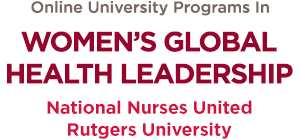Course Offerings
Fall 2025 (September-December) course offerings:
- Gender, Economic Inequality, and Health (Certificate requirement)
- Gender, Environmental Justice, and Health
- Care Work
Spring 2026 (January-May) course offerings:
- Women's Global Health Movements (Certificate requirement)
- The Global Pharmaceutical Economy and Health
- Global Food Politics: Health Consequences
Course Descriptions
Economic Justice
Gender, Economic Inequality, and Health (Certificate requirement)
How does economic inequality contribute to public health crises? This course investigates the current state of the global economy with a focus on how economic inequality produces wide disparities in health risk, access to health care and clinical outcomes. It also explores how domestic and global structures related to economic trade and migration create dysfunctional health care delivery systems. Students leave the course understanding why transnational struggles for a single standard of care for all people will heal inequality in our global society.
Debt, Crisis, and Women’s Health
Why has debt become the binding glue of the 21st century global economy and how does debt adversely affect health? This class explores the economic and social roots of debt and the resulting economic and public health crises it produces. Students will explore structural alternatives to debts and begin envisioning an economy less marked by crisis.
Health Care Justice
Care Work
This class situates professional nursing within the broader global context of the transnational care economy. Students will learn about the intimate nature of care work and identify how intensive physical labor, person-to-person communication, and human touch pose a challenge to market-driven efforts to increase profit-making through mechanization and exploitation of nurses, migrant and precarious workers. It identifies strategies that care workers have used to improve working conditions and their ability to deliver safe, therapeutic, and effective care both domestically and globally.
The Global Pharmaceutical Economy and Health
Nearly all modern health crises share at least one concern: access to medicine. The crisis might feel private, like a personal struggle with mental health. Or it might encompass national tragedies, like the United States’ decades-long opioid crisis. Or the Covid-19 pandemic, which has impacted the health — whether physical, mental, or economic — of every person in every corner of the world. This class explores the political and economic context in which the pharmaceutical industry has evolved and its implications for individual and community health. It prepares students to advocate for fair research and distribution of life-saving medicines as a necessary component of an equitable health care system.
Global Food Politics: Health Consequences
Enough food is produced internationally to feed the entire global population, so why do over 795 million people in the world go hungry? And why is so much of the food we produce unhealthy, causing chronic illness, malnutrition, and obesity? This class examines shifting patterns of food production from the traditional family farm to industrialized agriculture and transnational export chains. Students will learn how economic and public policies shape the domestic and global food system and explore the health consequences for patients and communities around the world.
Women's Global Health Movements (Certificate requirement)
This course offers a survey of women’s global health movements with a focus on different forms of inequality and health impacts related to gender, sexuality, race, and class. The course explores these health issues by drawing on a wide range of fields such as sociology, political science, anthropology, history, feminist studies, and public health. Topics may include how race, gender, and class intersect with the health care system, and how environmental justice and health justice struggles are linked to other struggles against inequality. The course also examines case studies of contemporary and historical struggles by everyday people who organized and mobilized to demand health justice.
Environmental Justice
Gender, Environmental Justice, and Health
What conditions of the current economy deplete the earth’s resources and contribute to human-made climate catastrophes? This class identifies market forces and practices, including pursuit of economic growth, that degrade our environment and disproportionately impact women’s health and livelihoods. Students leave the class understanding that environmental pollution is a symptom of a toxic political-economy, that it increases both chronic and emergent health crises, and that health advocates can be pivotal in preventing disaster and reversing toxic trends.
Related Links
Rutgers University
Rutgers University, Department of Women's and Gender Studies
![]()
